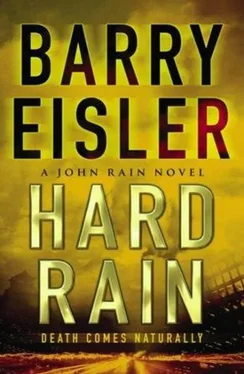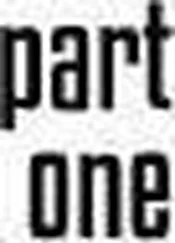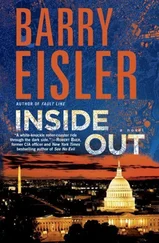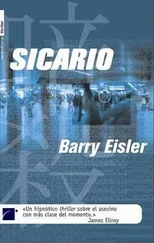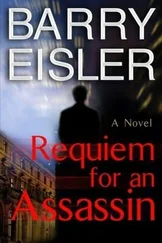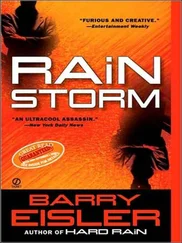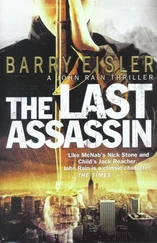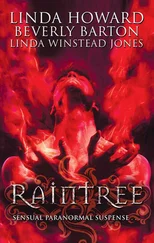Kanezaki stood to go. He reached into his jacket pocket, took out a card, handed it to Tatsu. “Please, contact me as soon as you know more,” he said.
Tatsu stood, too. He gave him a card in return. “I will.”
Kanezaki said, “Thank you.”
Tatsu bowed low and said, “ Kochira koso .” The same here.
Kanezaki nodded to me and walked away.
I waited a minute to allow Kanezaki to get clear, then said, “Let’s go.”
Tatsu understood. When I was a teenager, I once won a fight at a party. The guy I’d beaten left, while I enjoyed the feeling of being a hero. Trouble was, the guy returned a half-hour later, only this time with two friends. The three of them beat the crap out of me. The lesson was worth it. It taught me that, when the meeting is done, you leave, unless you want to take a chance on someone backing up on you.
We walked toward Inokashira-dori, the still darkness of Yoyogi Park to our right.
“How did it go today?” I asked as we walked. “With your man’s wife. His widow.”
Several seconds went by before he answered. “Fujimori-san,” he said, and I wasn’t sure whether he was talking about his fallen comrade or the wife. “I am fortunate to have had only three such conversations in my time with the Keisatsucho.”
We continued to walk in silence. Then I asked, “Any luck tracking Murakami today?”
He shook his head. “No.”
“The guy you interrogated?”
“Nothing yet.”
“Why did you want to see me tonight?”
“I wanted all my resources accessible, in case there was a hot lead on Murakami.”
“It’s personal now?” I asked.
“It’s personal.”
We walked in silence. “I’ll tell you one thing,” I said. “Just when I think I’m getting jaded, the CIA does something to really surprise me, like hiring a photographer to take pictures of its own case officers in case it needs to burn them. It’s refreshing.”
“There is no photographer,” Tatsu said.
I stopped and looked at him. “What?”
He shrugged. “I made him up.”
I shook my head and blinked. “There’s no Gretz?”
“There is a Gretz, in case Kanezaki thinks to check. A small-time dope dealer I once caught and let go. I had a feeling he might be useful later.”
I didn’t know what to say. “Tell me what I’m missing, Tatsu.”
“Not that much, really. I simply offered Kanezaki corroboration that his fears are not mere paranoia, while positioning myself as a friend.”
“Why?”
“I needed him to be thoroughly convinced that he is indeed being set up. We don’t yet have sufficient information to really know what action to take. I want him to be comfortable calling on me. Even eager.”
“Is he being set up, do you think?”
He shrugged. “Who knows? Biddle’s request for the receipts seems suspicious, as does that missing cable, but I don’t pretend to understand all the CIA’s bureaucratic procedures.”
“Why would Biddle have been taking such an inordinate interest in Kanezaki’s meetings?”
“I don’t know. But it wasn’t to photograph them. My men observed nothing out of place at the meeting site. Certainly no one with a camera.”
He was being awfully open with me about his duplicity. Perhaps his way of telling me that he trusted me. The in-group and the out-group. Us and them.
We started walking again. “It was lucky, then, that the kid came to me with his suspicions,” I said.
“And that you came to me. Thank you for that.”
I shook my head, then said, “What do you know about Crepuscular?”
“No more than what Kanezaki has told us.”
“The politicians the program has been underwriting-are you working with any of them? Maybe the ones the disk didn’t implicate?”
“Some of them.”
“What happened? You learned from the disk that they weren’t in Yamaoto’s network. Then what?”
“I warned them. Simply sharing my information on Yamaoto’s methods, and on who among them was a Yamaoto stooge, turned them into considerably wiser, and harder, targets.”
“And you knew they were taking money from the CIA?”
“I knew of some, not necessarily all. From my position, I can only help protect these people from Yamaoto’s practices of extortion. But Kanezaki was correct in saying that in Japan’s system of money politics, honest politicians still need cash to compete against Yamaoto-funded candidates. And that I cannot provide.”
We walked wordlessly for a minute. Then he said, “I admit I was surprised to learn that these people would be foolish enough to sign receipts for CIA disbursements. I fault myself, for underestimating the depth of their gullibility. I should have known better. As a breed, politicians can be astonishingly stupid, even when they are not being venal. If it were otherwise, Yamaoto would have a much harder time controlling them.”
I thought for a moment. “Forgive me for saying so, Tatsu, but isn’t this whole thing just a waste of time?”
“Why do you say?”
“Because even if these guys have some ideals, even if you can protect them from Yamaoto, even if they have access to some cash, you know they can’t make a difference. Politicians in Japan are just ornamentation. The bureaucrats run the show.”
“Our system is strange, is it not,” he said. “An uncomfortable combination of domestic history and foreign intervention. The bureaucrats are certainly powerful. Functionally, they are the descendants of the samurai, with everything that lineage entails.”
I nodded. After the Meiji restoration in 1868, the samurai became the servants of the emperor, who was himself believed to be descended from the gods. The association connoted tremendous status.
“Then the wartime system put them in charge of the industrial economy,” he continued. “The American occupation maintained this system so America could rule through the bureaucracy rather than through elected politicians. All this led to an accrual of additional prestige, additional power.”
“I’ve always said Japan’s rule by bureaucracy is a kind of totalitarianism.”
“It is. But it is distinguished in that there is no Big Brother figure. Rather, the structure itself functions as Big Brother.”
“That’s my point. What can you gain by protecting a handful of elected politicians?”
“For the moment, perhaps not much. Today, the politicians act mainly as mediators between the bureaucrats and the voters. Their job is to secure for their constituents the biggest slice possible from the pie that the bureaucrats control.”
“Like lobbyists in the U.S.”
“Yes. But the politicians are elected. The bureaucrats are not. This means that the voters do exercise theoretical control. If they elected politicians with a mandate to rein in the bureaucracy, the bureaucrats would bend, because their power is a function of their prestige, and to oppose a clear political consensus would be to risk that prestige.”
I didn’t say anything. I understood his point, although I suspected his planning was so long-term as to be ultimately futile.
We walked for a few moments in silence. Then he stopped and turned to me.
“I would like you to have a chat with Station Chief Biddle,” he said.
“I’d love to,” I said. “Kanezaki seems to think Biddle was surprised to hear about Harry’s death, but I’d like to make sure. The problem is how to get to him.”
“The CIA Chief of Station is declared to the Japanese government. Many of his movements are no mystery to the Keisatsucho.” He reached into his jacket pocket and took out a photo. I saw a midforties Caucasian with a narrow face and nose, and close-cropped, sandy-colored thinning hair, the eyes blue behind tortoiseshell glasses.
Читать дальше
